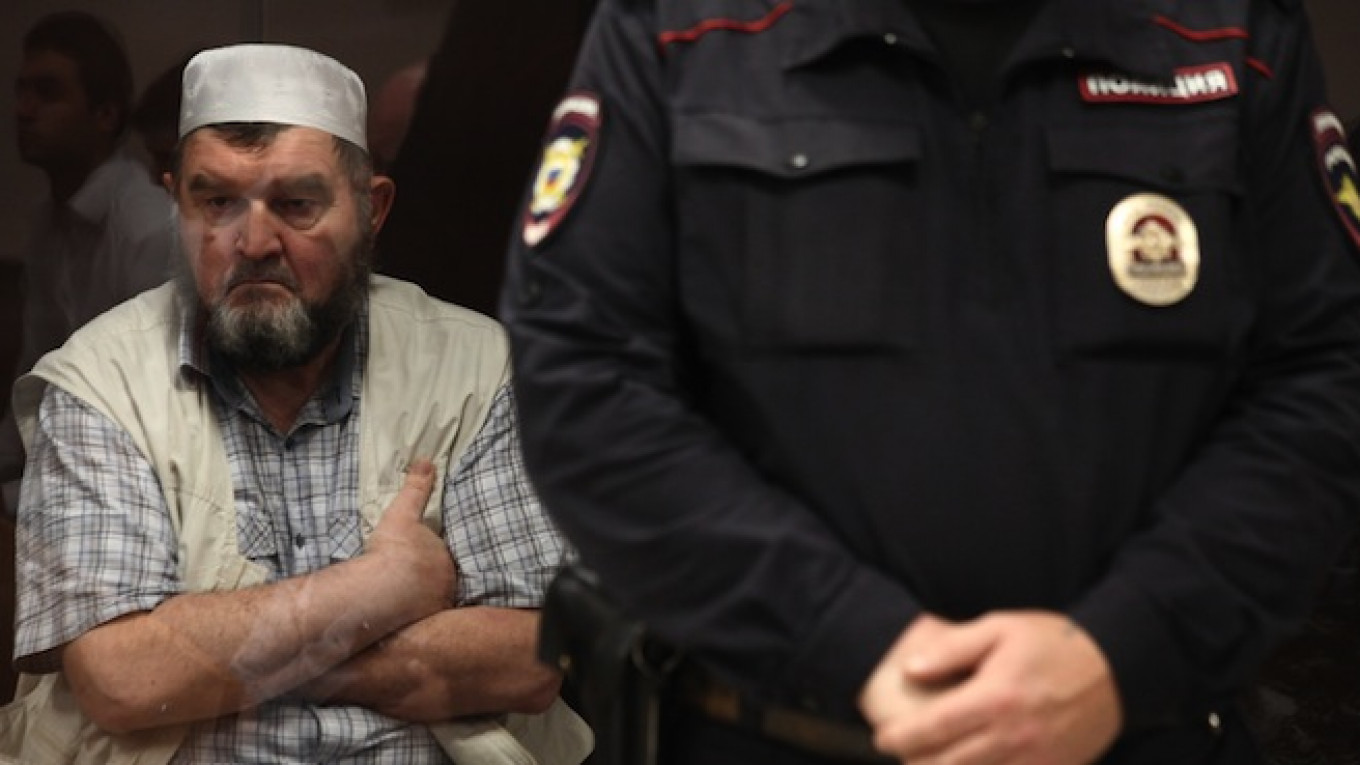The July 12 arrest of Moscow imam Makhmut Velitov on charges of publicly justifying terrorism marked a new first for Russian authorities.
While indicting Islamic clerics for supporting terrorism and inciting ethnic hatred is common practice in the North Caucasus and Volga republics, Velitov's arrest was the first time that an imam from one of Moscow’s largest mosques — the Yardyam mosque in the north of the city — has been detained by police.
Velitov was charged with supporting the actions of a member of the Hizb ut-Tahrir organization. The Russian Supreme Court classified Hizb-ut-Tahrir as a terrorist organization in September 2003 and banned its activities in the country.
Charging imams for these perceived pledges of support to individuals is not uncommon. Alexander Verkhovsky, Director of the Sova Information and Analysis Center, claims that imams are often held responsible for the guilt of other individuals. Authorities often persecute imams for the real or alleged participation of their congregants in military actions by the Islamic State, he said.
Yet the lack of desire from intelligence agencies to understand all the intricacies of the Quran and its interpretation leave religious leaders in a difficult position, sociologist Denis Sokolov told Vedomosti. It is easier, and often more advantageous for authorities to simply declare anything that diverges from canonical interpretation or prayer as extremist and to ban it. This leaves Islamic and other clerics wishing to differ or evolve from accepted norms facing a dilemma: to lose credibility before their congregants or risk their position and freedom due to repressive laws.
Their inability to understand the divisions with Islam also leaves the state and its intelligence agencies at risk of becoming tools in the struggle between contending religious movements.
Until now, Russian police have managed to prosecute supporters of “non-traditional” branches of Islam without sparking mass protests by the faithful. The case against Velitov is apparently an exception. The imam is considered a supporter of traditional Islam and the Yardyam mosque falls under the jurisdiction of the Central Spiritual Administration of Muslims of Russia (TsDUM). Headed by Mufti Talgat Tadzhuddin, the organization has always been extremely loyal to the Russian authorities and to the Russian Orthodox Church.
On Tuesday, Ildar Alyautdinov, chief imam of the Moscow Cathedral Mosque, said that those who worship in the Yardyam Mosque “do not always strictly follow the rules of Islam.”
Yet Alyautdinov is also head of the Moscow branch of the Spiritual Administration of Muslims of European Russian (DUMER), headed by Mufti Ravil Gainutdin — a group with which TsDUM has an unspoken rivalry. It remains unclear whether the Investigative Committee is considering the possible influence of this rivalry on statements made by Alyautdinov and others.
Further developments will now depend on how the Muslim community reacts, says political analyst Alexei Makarkin. If an explanation can be found for the arrest which most local Muslims find acceptable, protests are unlikely. If no reasonable explanation is forthcoming and the authorities continue applying pressure against Moscow Muslims, problems might arise.
The Islamic State is a terrorist organization banned in Russia.
A Message from The Moscow Times:
Dear readers,
We are facing unprecedented challenges. Russia's Prosecutor General's Office has designated The Moscow Times as an "undesirable" organization, criminalizing our work and putting our staff at risk of prosecution. This follows our earlier unjust labeling as a "foreign agent."
These actions are direct attempts to silence independent journalism in Russia. The authorities claim our work "discredits the decisions of the Russian leadership." We see things differently: we strive to provide accurate, unbiased reporting on Russia.
We, the journalists of The Moscow Times, refuse to be silenced. But to continue our work, we need your help.
Your support, no matter how small, makes a world of difference. If you can, please support us monthly starting from just $2. It's quick to set up, and every contribution makes a significant impact.
By supporting The Moscow Times, you're defending open, independent journalism in the face of repression. Thank you for standing with us.
Remind me later.


